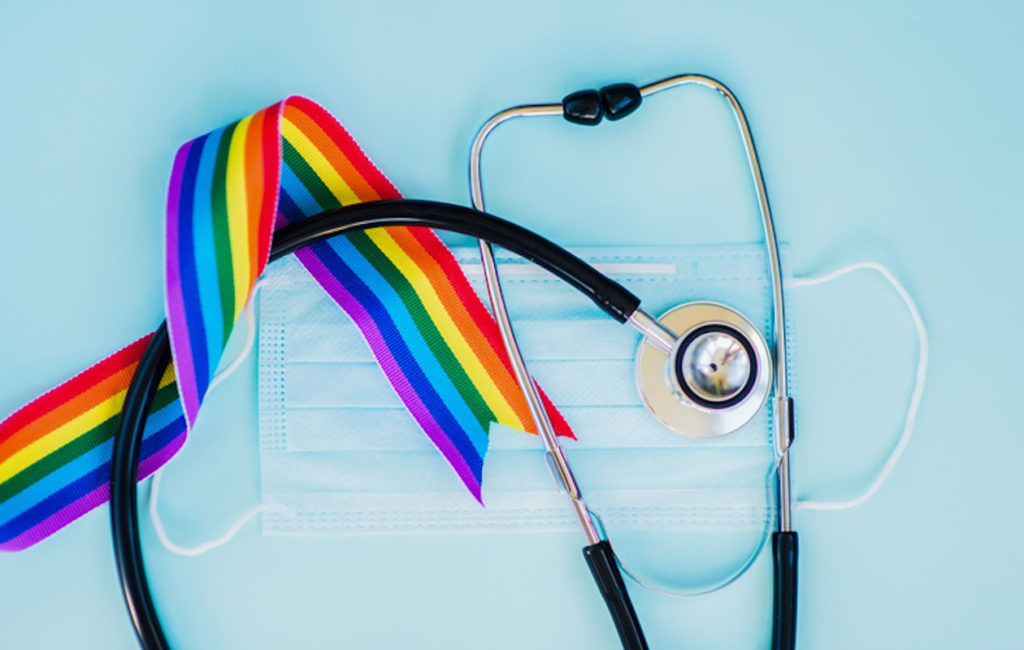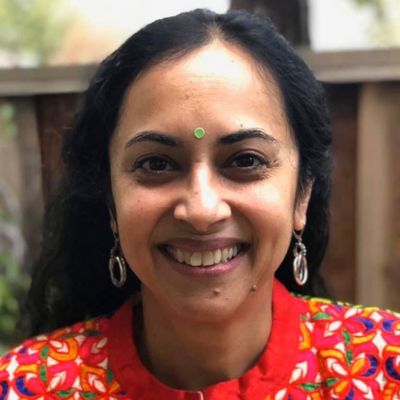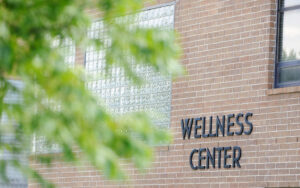This is Pride Month and while we celebrate the LGBTQ+ (Lesbian Gay Bisexual Transgender Queer/Questioning) community, we recognize that it is still a marginalized minority. Our LGBTQ+ family faces stigma, discrimination and lacks federal protection in housing, healthcare, employment, and education. Homophobia is a public health crisis which renders multiple challenges related to physical and mental health as well as access to healthcare for its victims.
Ayurveda takes its cue from nature and celebrates diversity. It supports all ethnicities, races, genders and sexual orientations as part of one consciousness or “one-world family,” the precious Vedic Philosophy of Vasudev Kutumbhakam. As a holistic and inclusive science, Ayurveda is uniquely poised to help with LGBTQ+ healthcare, provided we offer affirming, safe and competent care. To practice what we preach, we explore in this article ways to modify and update old systems in our wellness practices, upgrade our communication and lead with compassionate, inclusive care. We hold ourselves accountable to these tips and welcome you to explore them and create an LGBTQ+ friendly wellness space!
Educate yourself and your entire wellness staff
Did you know that 1-2% of the population are intersex? And that many have non-consensual surgeries as kids and unusually high incidence of depression and anxiety?
The first important step is education. We need to inform ourselves and our practice about gender identity, expression, sexual orientation and healthcare needs (some that are similar to the general population and others, that are unique). Only from an informed place can we establish best practices for staff and provide cultural competency training, all of which falls under the education umbrella. By training and opening conversations with staff, you can create a strong DEI (Diversity, Equity and Inclusion) policy of which everyone is aware and prepared to uphold. This can be done through training for existing and new employees with open, safe and active conversations that educate and answer questions so everyone is on the same page and understands their role in creating a safe space.
Remember that education never ends, and a long term plan for continued education will build your team’s support potential.
Create a welcoming, affirming and safe space in your practice
Would you want someone’s experience walking into your space to involve anxiety as they scan it to determine whether or not they are safe? Of course not!
Given the existing healthcare disparities, a clearly displayed and prominent nondiscrimination policy that protects LGBTQ+ family can inspire confidence for your guests. Your workspace and digital presence can have additional cues and graphics like: the progress pride flag, same-sex couple imagery, or signs with explicit affirmations about supporting the community. Some of these messages will be incorporated into the practical aspects of the space, such as offering a unisex or single-stall restroom and offering inclusive language in your print or online health intake forms (more on that later). You can have fun with incorporating this messaging into your design and decor! All of these efforts express your intent, take a stand against homophobia and and elevate LGBTQ+ voices.
Our CEO, Vaidya. Jayarajan Kodikannath’s says, “Ayurveda has traditionally supported everyone irrespective of gender identity and orientation and Kerala Ayurveda is proud to be an LGBTQ+ affirming, safe and welcoming space.” Quotes like these make excellent content to be shared in your service menu, brochures, or in signs in your space.
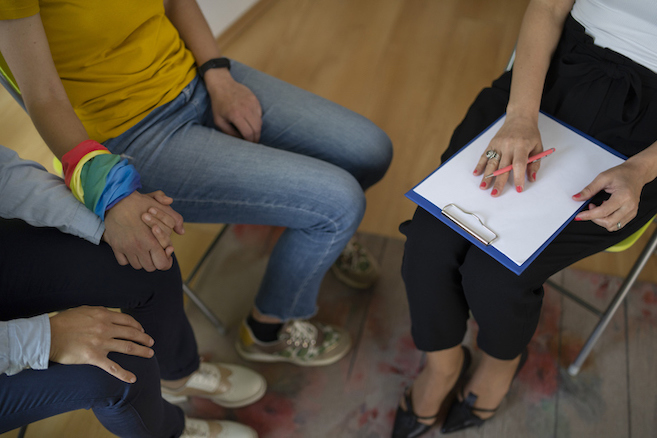
Utilize affirming and holistic health practices during client sessions
Almost 1 in 3 LGBTQ+ youth are rendered homeless and the community is subjected to violence at 4 times the rate of other populations generating considerable trauma.
Confidentiality and following HIPAA guidelines ensures privacy protections which help LGBTQ+ folks feel safe. Intake forms that contain inclusive, gender-neutral language allow for self-identification and provide comfort so clients can open up at their own pace. If you gather information about sexual orientation and gender identity in your casework and surveys, you can use aggregated data to help develop or modify programs and services that best suit the needs of the community.
Ayurveda honors holistic health, affirms life stories, pronouns, chosen names and addresses the client’s physical, mental and spiritual health. Being LGBTQ+ is an inherent part of their authentic selves that must be validated, and we must avoid being reactive, promoting shame, projecting biases or perpetuating trauma.
Do be respectful and empathetic in your practice, allow for disclosure to be voluntary and use inclusive language, mirroring their own.
Don’t make assumptions, because any client can be LGBTQ+, regardless of appearance, behavior, age, socioeconomic status, race or ethnicity.
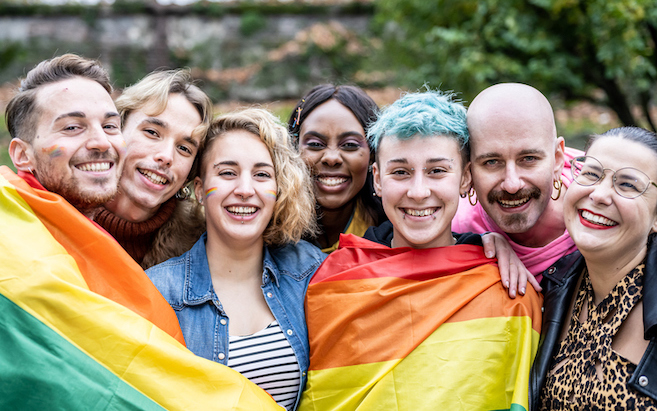
Address the unique health concerns of LGBTQ+
According to the Trevor Project, an LGBTQ+ youth attempts suicide every 45 seconds, the second leading cause of death in this category.
Ayurveda can help the LGBTQ+ community with preventive health and disease management, and it can also nurture resilience. In addition, there are special health concerns based on how they identify – e.g. lesbian vs transgender. There are also unique concerns for their subpopulation. For instance, youth that may be self-harming or self-medicating with substance abuse, are one subpopulation which has a higher suicide risk and mental health issues due to trauma. The elderly subpopulation may require support with anxiety that is unique to their age, unique family concerns for their generation, and palliative care. Meanwhile, marginalized races like BIPOC (Black, Indigenous and people of color) transwomen experience challenges of intersectionality.
You can evolve guidelines and clinical protocols as best practices to be used for future cases, provide trauma-informed care, and expand your resources for conditions like HIV or suicide prevention. For instance, in transgender healthcare, your client may transition socially or medically; may or may not have gender dysphoria; may seek support during hormone therapy or leading up to transition surgeries, or you can help them with integrative care throughout any of these processes.
Practice “do no harm” in all aspects of your practice
Research shows that conversion therapy is strongly linked to negative mental health outcomes including depression, increased substance abuse and more serious suicide attempts.
Every healthcare practice implies an oath to prevent malpractices, discrimination, and to do no harm. It’s important to examine your own unconscious biases so that you can avoid invalidating or pathologizing the queer experience.
Some of the damaging biases that must be corrected:
- Microexpressions that reveal a reaction of surprise or judgment
- Microaggressions like ignoring a person, dismissing someone’s presence, making statements with hidden or subtly implied bias or judgment
- Using language about LGBTQ+ being an imbalance (Vikriti), or involving imbalanced energy centers (Chakras)
- Abuse of any kind: intimidation, coercion, ridiculing, harassment, or infantilizing
- Tolerating abuse by others and avoiding confrontation to end it
- Imposing personal ideology on others
- The dangerous malpractice of conversion therapy
- Discussing LGBTQ+ clients with professional colleagues in any way that violates the above
- If you are prejudiced or not competent to handle a case, you should refer it out
Everyone who needs healthcare should be able to see a practitioner without worrying about being ill-treated or harassed. Discrimination can endanger LGBTQ+ people’s health, while support could be life-affirming and life saving! It might take a lot for the LGBTQ+ community to trust you as a healthcare professional, but incorporating tips like these can help you to establish that trust. Ayurveda as the “science of life” empowers everyone to live life to their fullest potential. When you institute best practices and provide adequate, competent and affirming healthcare to the LGBTQ+ community, you help others accomplish the goal of Ayurveda, AND fulfill your purpose, or Dharma.
About the author
Anuradha Gupta (she/her) is a Content Specialist at Kerala Ayurveda USA, Certified Ayurvedic Practitioner and Ayurvedic Doctor in training. She is an Engineer, MBA and 200 Hr RYT with her own practice, Ayurvedic Footprints. Anu is an LGBTQ+ advocate who represented the Human Rights Commission at the US Senate in 2021; she is a Board Member of PFLAG SRV, and a volunteer with many organizations including the Art of Living Foundation and Free Mom Hugs.
References
- REPRESENTATION MATTERS | Supporting the LGBTQ+ community in Ayurveda – Kerala Ayurveda Academy
- The Trevor Project National Survey
- Discrimination Prevents LGBTQ People From Accessing Health Care – Center for American Progress
- LGBTQ and Health Care: Advocating for Health Access for All (tulane.edu)
- How to Close the LGBT Health Disparities Gap – Center for American Progress
- Resource Center – The Trevor Project
- Hospital Gets Sued for Discrimination After Transgender Teen Suicide | Teen Vogue
- LGBT Healthcare Best Practices: A Literature Review – Thomas / Bustos (thomasbustos.org)
- Best practices in LGBT care: A guide for primary care physicians | Cleveland Clinic Journal of Medicine (ccjm.org)
- Creating an LGBTQ-friendly practice | American Medical Association (ama-assn.org)
- Healthcare Equality Index 2022 – HRC Digital Reports
- Health Care Disparities Among Lesbian, Gay, Bisexual, and Transgender Youth: A Literature Review – PMC (nih.gov)

